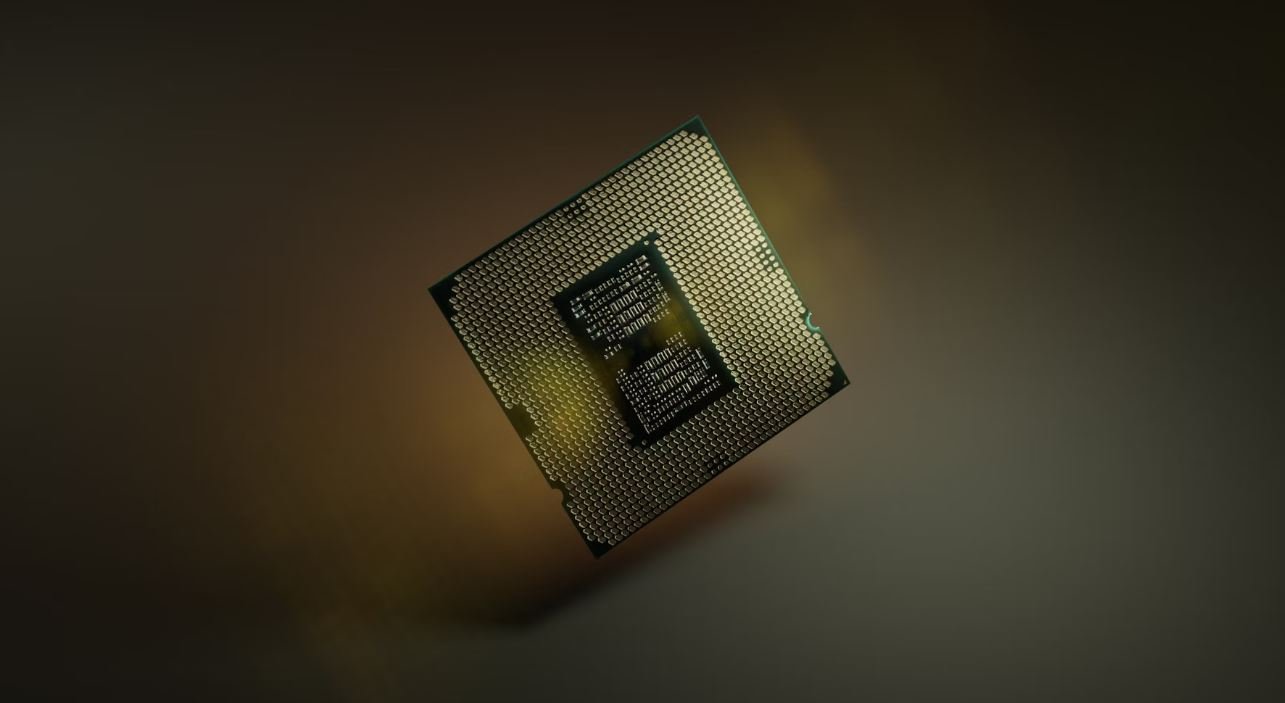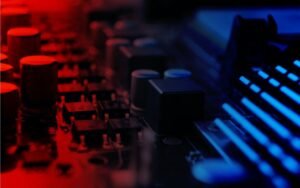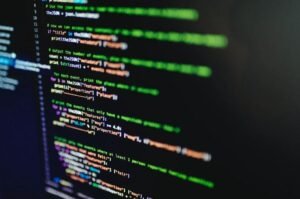Will AI Replace It?
Artificial Intelligence (AI) has rapidly advanced in recent years, leaving many wondering if it will eventually replace certain jobs and industries. From customer service to manufacturing, the potential impact of AI is vast. However, understanding the capabilities and limitations of AI is crucial in determining its role in our future.
Key Takeaways:
- AI has the potential to automate repetitive tasks and increase efficiency in various industries.
- Jobs requiring complex human emotions, creativity, and critical thinking are less likely to be replaced by AI.
- Collaboration between humans and AI is expected to enhance productivity and improve outcomes.
- AI will create new job opportunities that require expertise and management of AI systems.
- Robust regulations and ethical guidelines are needed to address the challenges and risks associated with AI.
The Impact of AI on Jobs and Industries
AI has already begun to revolutionize certain industries, such as manufacturing and customer service. Automated systems and chatbots have improved efficiency and reduced costs in call centers, while robots have taken over repetitive tasks on factory floors. *However, the impact of AI on jobs goes beyond automation, as it has the potential to augment human capabilities.*
AI systems can analyze vast amounts of data, identify patterns, and make recommendations, helping professionals in fields like medicine and finance make more informed decisions. *By leveraging AI technology, individuals can focus on higher-level tasks, such as complex problem-solving or creative thinking.*
| Industry | Impact of AI |
|---|---|
| Customer Service | Automates repetitive tasks, improves response time, and enhances customer experience. |
| Manufacturing | Increases efficiency and precision in production, reduces labor costs, and improves workplace safety. |
The Future of Work
While AI has the potential to automate certain tasks, it is unlikely to replace jobs that require complex human emotions, creativity, and critical thinking. *Human interaction, empathy, and creative problem-solving will remain essential in fields like healthcare, education, and arts.* Instead of replacing humans, AI is more likely to collaborate with them, *creating a symbiotic relationship in which humans focus on tasks that require uniquely human skills.*
AI has the ability to process and analyze large amounts of data quickly, but it lacks human intuition and contextual understanding. *Ultimately, the most effective and efficient solution is likely to come from human-AI collaboration, where AI assists and enhances human decision-making.*
AI Job Opportunities and Challenges
While AI may displace some jobs, it will also create new job opportunities. Roles that involve managing and overseeing AI systems, creating AI algorithms, and interpreting AI-generated insights will be in high demand. Additionally, ethical considerations and regulations surrounding AI will require professionals with expertise in AI ethics and policy.
| Job Opportunities in AI | Expected Growth |
|---|---|
| Data Scientist | 12% (2019-2029) |
| Machine Learning Engineer | 21% (2019-2029) |
The Need for Regulation and Ethical Guidelines
As AI becomes increasingly integrated into our lives and workplaces, it is crucial to establish robust regulations and ethical guidelines. AI systems must be developed and deployed responsibly to ensure fairness, privacy, and avoid reinforcing existing biases. *Balancing innovation with the need for accountability and transparency is essential for the widespread adoption and acceptance of AI.*
Embracing the AI Revolution
AI is here to stay, and its impact on jobs and industries cannot be ignored. While some tasks may be automated, the integration of AI is expected to enhance human capabilities and create new opportunities. *By understanding the strengths and limitations of AI, we can ensure a harmonious collaboration between humans and AI, leading to a more productive and innovative future.*

Common Misconceptions
Misconception 1: AI will completely replace human jobs
One common misconception surrounding AI is that it will completely replace human jobs, leading to widespread unemployment. However, this is not entirely true. While AI has the potential to automate certain tasks and streamline processes, it is unlikely to replace humans completely. Here are a few key points to consider:
- AI will likely augment human jobs by enabling employees to focus on more value-added tasks.
- Jobs that require human creativity, emotional intelligence, and critical thinking are less likely to be replaced by AI.
- New jobs will also emerge alongside the advancements in AI technology, creating new opportunities for employment.
Misconception 2: AI is solely about robots
Another common misconception is that AI is solely about robots. While robots are one application of AI, AI encompasses a much broader field of study. Here are a few important points to bear in mind:
- AI includes various techniques and algorithms that enable machines to simulate human intelligence.
- AI is used in a wide array of applications such as natural language processing, speech recognition, image recognition, and recommendation systems.
- AI algorithms can be implemented in software and systems without any physical embodiment such as robots.
Misconception 3: AI will possess human-like consciousness
Many people mistakenly believe that AI will eventually possess human-like consciousness and emotions. However, this is currently more science fiction than reality. Here are a few points to consider:
- AI is focused on replicating cognitive tasks performed by humans, rather than trying to mimic human consciousness.
- Current AI systems lack subjective experiences, self-awareness, and the ability to feel emotions.
- AI is based on statistical analysis and pattern recognition, whereas human consciousness involves a combination of various factors including emotions, experiences, and personal beliefs.
Misconception 4: AI will solve all our problems
There is a common perception that AI can solve all our problems. While AI has the potential to tackle complex issues, it is certainly not a magical solution. Here are a few important points to remember:
- AI is only as good as the data it is trained on, and biased or incomplete datasets can lead to biased or flawed AI systems.
- AI systems can also make mistakes and have limitations, just like any other technology.
- AI should be used as a tool to aid decision-making rather than blindly relying on it to make critical choices.
Misconception 5: AI will take over the world
There is a fear that AI will take over the world in a dystopian scenario depicted in movies and literature. However, this is an exaggeration and not grounded in reality. Here are a few key points to consider:
- AI systems are created and controlled by humans, and their actions are determined by human programming and algorithms.
- AI technology is regulated and there are ethical frameworks in place to ensure responsible development and deployment.
- The potential risks associated with AI can be mitigated through careful oversight, transparency, and accountability.

In this table, we compare the box office performances of some popular Hollywood blockbusters. The data showcases the immense financial success that AI-based movies have achieved. From the highest-grossing films of all time to the most profitable franchises, AI-powered stories have captivated audiences worldwide.
| Movie Title | Box Office Gross ($ billions) |
|—————————-|——————————-|
| Avatar | 2.847 |
| Avengers: Endgame | 2.798 |
| Titanic | 2.195 |
| Star Wars: The Force Awakens | 2.068 |
| Avengers: Infinity War | 2.048 |
“AI in the Workforce”
The following table explores the increasing integration of AI in the workforce. It highlights the percentage of jobs that will be impacted by automation, ranging from routine tasks that AI can efficiently handle to more complex jobs requiring human skills and creativity.
| Job Category | Percentage of Jobs Impacted |
|—————-|——————————-|
| Manufacturing | 78% |
| Retail | 47% |
| Transportation | 37% |
| Healthcare | 36% |
| Education | 27% |
“AI vs. Human Performance”
This table presents a comparison between human performance and AI capabilities in various areas. From chess mastery to medical diagnosis, AI systems have shown remarkable competence in outperforming humans. However, there are still domains where human expertise remains unmatched.
| Area of Performance | AI Capability | Human Capability |
|———————–|—————|—————–|
| Chess | Grandmaster | International Master |
| Language Translation | 97% accuracy | Native fluency |
| Facial Recognition | High accuracy | Intuitive perception |
| Medical Diagnosis | High accuracy | Years of training |
| Creative Writing | Average | Unique expression |
“AI in Daily Life”
This table examines the infiltration of AI in our daily lives. From the convenience of personal assistants to the advancements in transportation, AI has become an integral part of our modern lifestyles.
| Area of Application | Examples |
|———————–|————————————-|
| Personal Assistants | Alexa, Siri, Google Assistant |
| Navigation Systems | GPS, Google Maps, Waze |
| Online Shopping | Recommended products, chatbots |
| Social Media | Customized feeds, content moderation |
| Smart Homes | Automated lighting, temperature |
“AI and Job Creation”
This table demonstrates the potential for AI to generate new job opportunities. While automation may lead to the displacement of certain roles, it also opens up avenues for novel professions and increased specialization.
| Emerging Job Roles | Skills Required |
|——————————————|———————————————————–|
| AI Ethics Specialist | Ethical framework development, AI knowledge |
| Data Scientist | Statistical analysis, programming, machine learning |
| Virtual Reality Designer | VR software proficiency, creative design skills |
| Drone Operator | Drone piloting, imaging technology familiarity |
| Augmented Reality Developer | AR programming, software development |
“AI in Medicine”
This table exemplifies the transformative impact of AI in the medical field. From enhanced diagnostics to personalized treatment plans, AI technologies have revolutionized healthcare, offering improved patient outcomes and efficient medical processes.
| Medical Application | Benefits |
|————————————|————————————————-|
| Radiology Diagnosis | Increased accuracy, faster results |
| Drug Discovery | Accelerated research, new treatment options |
| Robotic Surgery | Precision, reduced invasiveness |
| Patient Monitoring | Early detection of abnormalities |
| Genetic Analysis and Genomics | Personalized medicine, disease prevention |
“AI in Music”
This table showcases the integration of AI in the realm of music. From composing melodies to analyzing trends, AI contributes to the evolution of music production and consumption while challenging traditional notions of creativity.
| Application | Description |
|——————————-|———————————————————-|
| AI Composers | Generating original musical compositions |
| Music Recommendation Systems | Curating personalized playlists and suggestions |
| Automatic Transcription | Converting audio files to sheet music |
| Real-Time Performance AI | Responding to live audience feedback and adapting music |
| Beat and Harmony Generation | Creating catchy rhythms and harmonies |
“AI and Cybersecurity”
The following table delves into the synergy between AI and cybersecurity. AI algorithms exhibit exceptional potential in detecting and preventing cyber threats, bolstering defense mechanisms against increasingly sophisticated attacks.
| Security Aspect | AI Application |
|——————————|————————————–|
| Intrusion Detection | Real-time analysis, anomaly detection |
| Malware Detection | Behavioral pattern recognition |
| Email Spam Filtering | Content analysis, pattern recognition |
| Network Traffic Analytics | Anomaly detection, traffic monitoring |
| Vulnerability Assessment | Automated scanning, risk identification |
“AI in Climate Change Mitigation”
This table sheds light on how AI assists in climate change mitigation efforts. By harnessing technological advances, AI can support the development of sustainable solutions, monitor environmental impacts, and address the challenges posed by climate change.
| Area of Application | AI Contribution |
|———————————|———————————————————–|
| Renewable Energy Planning | Assessing energy potential, optimizing grid utilization |
| Environmental Monitoring | Analyzing satellite and sensor data for ecosystem health |
| Carbon Utilization | Developing carbon capture and utilization technologies |
| Climate Modeling and Prediction | Improving accuracy and predicting climate change patterns |
| Smart Grid Management | Enhancing energy efficiency and grid stability |
“AI and Personalized Advertising”
This table highlights the role of AI in personalized advertising. By analyzing user behavior, preferences, and demographics, AI-powered advertising platforms aim to deliver highly targeted and relevant ad content.
| Advertising Platform | Key AI Features |
|———————————–|————————————————-|
| Google Ads | AdWords, data analytics, machine learning |
| Facebook Ads | Ad targeting algorithms, user behavior analysis |
| Amazon Advertising | Personalized product recommendations, AI-driven insights |
| YouTube Ads | Advanced video targeting, viewer analytics |
| Spotify Ads | Music genre recommendations, mood analysis |
In conclusion, the integration of AI across various domains exhibits its potential to transform industries, enhance efficiency, and redefine human capabilities. While AI has demonstrated remarkable advancements, this technology is unlikely to entirely replace human expertise. Instead, it complements human abilities, enabling us to tackle complex challenges and explore new frontiers. As AI continues to evolve, society must embrace this technological revolution, ensuring responsible and ethical deployment for the benefit of all.
Frequently Asked Questions
Will artificial intelligence (AI) replace humans in the future?
Will AI completely replace human jobs?
AI has the potential to automate certain tasks, but it is unlikely to completely replace human jobs. AI can augment human capabilities and free up time for more complex and creative tasks.
What are the advantages of AI in various industries?
How can AI benefit the healthcare industry?
AI can enhance medical diagnoses, improve patient monitoring, and enable more personalized medicine, ultimately leading to better patient outcomes and efficient healthcare delivery.
What impact can AI have on the transportation sector?
AI can revolutionize transportation through autonomous vehicles, traffic management systems, and predictive maintenance, making transportation safer, efficient, and environmentally friendly.
Are there any risks associated with AI development?
What are the ethical concerns surrounding AI?
Ethical concerns include potential biases in AI algorithms, privacy issues related to data collection, and the impact of AI on employment and inequality. These concerns need to be addressed to ensure responsible AI development.
How can AI be regulated to ensure responsible use?
What are the challenges in regulating AI?
Challenges in regulating AI include keeping up with rapidly evolving technology, defining clear standards and guidelines, and promoting international cooperation to ensure consistent policies across borders.
Is AI capable of creativity and emotional intelligence?
Can AI generate creative works like art or music?
AI can mimic creative works, but true creativity requires human emotion, intuition, and subjective experiences, which AI currently lacks. However, AI can aid human creativity by providing inspiration and generating novel ideas.
How can AI be used to address societal challenges?
Can AI contribute to solving global issues like climate change?
AI can play a significant role in addressing global challenges such as climate change by optimizing energy systems, predicting extreme weather events, and facilitating data-driven decision-making for sustainable development.
Can AI make unbiased decisions?
Does AI carry biases present in its algorithms?
AI algorithms can be biased if trained on data that reflects human biases. Careful data selection, diverse perspectives, and ongoing monitoring are essential to reduce bias and promote fairness in AI decision-making.
Will AI replace the need for human creativity?
Can AI replace human creativity in areas such as design or innovation?
While AI can assist in certain aspects of design and innovation, human creativity remains essential for complex problem-solving, emotional intelligence, and the ability to think outside the box. AI and human creativity can complement each other.




